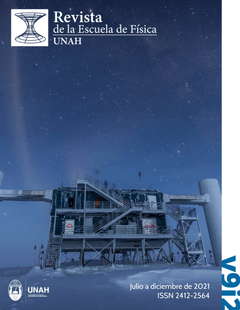Considerations for the design of a Dosimetric Calibration Secondary Laboratory for the UNAH School of Physics
DOI:
https://doi.org/10.5377/ref.v9i2.13904Keywords:
Dosimetry, Radiation, LaboratoryAbstract
The primary function of a Secondary Dosimetry Calibration Laboratory (LSCD or SSDL) is to provide a specific metrology service for the measurement of different parameters related to ionizing radiation, through the establishment of standard measurements, through formal mechanisms and technically traceable, to values recognized and accepted as real and exact. In Honduras, the use of ionizing radiation extends to various applications and in particular in the field of medical exposures, they have increased in number and complexity with the demand for new health services and the implementation of new medical techniques. As these are activities in which people are exposed to radiation for medical purposes, it is imperative to establish controls and mechanisms to ensure the quality of the radiation beams used. These quality assurance mechanisms require services associated with radiation metrology, the costs and management of which are generally relatively high and complex respectively, and imply being initiated through public investment. This document summarizes the considerations made to approach the initial planning of a LSCD in Honduras.
Downloads
297
Downloads
Published
How to Cite
Issue
Section
License
Copyright (c) 2022 Revista de la Escuela de Física

This work is licensed under a Creative Commons Attribution-NonCommercial 4.0 International License.
© Revista de la Escuela de Física




